Why can’t I access this file?
Possible reasons you cannot access this file:
- Your membership has expired.
- The file is restricted to certain users.
If you are seeing this message in error, please contact us.
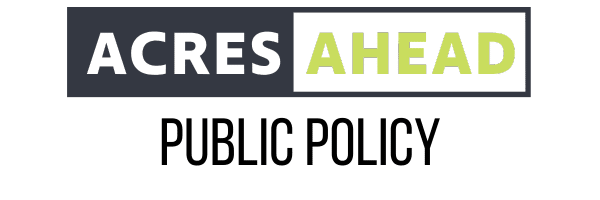
Possible reasons you cannot access this file:
If you are seeing this message in error, please contact us.

Ever wonder how the fruits, veggies, and grains that feed our nation get the nutrients they need? The answer lies in fertilizers. But have you thought about how these crucial substances get to where they’re needed safely and efficiently? This week on the Fertilizer 101 Podcast, we’re shifting tracks to focus on an issue that impacts us all: Railway Safety.
Episode 1: Fertilizer & Railway Safety
Why Should You Care?
Railways are the veins that connect the heart of our agricultural centers to the rest of the country. Safe transport of fertilizer isn’t just a farmer’s concern—it affects us all!
What’s on the Agenda?
Don’t let this train of knowledge pass you by! Listen to Fertilizer 101, and get on board with railway safety today!

Arlington, VA – The Fertilizer Institute (TFI) President and CEO Corey Rosenbusch today praised the unanimous decision by the Surface Transportation Board (STB) to issue a Notice of Proposed Rulemaking (NPRM) on providing rail customers access to reciprocal switching as a remedy for poor rail service.
“TFI has long advocated for reforms such as reciprocal switching to promote competition and enhance rail service. Market-based incentives will encourage rail carriers to be more customer-oriented,” Rosenbusch said. “The unanimous, bipartisan vote is a clear acknowledgement by the STB that these challenges must be addressed.”
The proposal from the STB would provide a streamlined path for rail customers to obtain a reciprocal switching order by including specific, objective, and measurable criteria for determining if they are eligible. That criterion includes measures of service reliability, service consistency, and adequacy of local service. The proposal would also standardize these three service metrics across all Class 1 carriers for the first time.
“Over 60% of fertilizer moves by rail and is therefore critical to the on-time delivery of fertilizer to farmers exactly where and when they need it,” concluded Rosenbusch. “We thank Chairman Oberman and all of the Board Members for their efforts to improve rail service. TFI looks forward to participating in the comment process and enactment of this important reform.”
###
The Fertilizer Institute (TFI) is the leading voice of the nation’s fertilizer industry. Tracing its roots back to 1883, TFI’s membership includes fertilizer producers, wholesalers, retailers and trading firms. TFI’s full-time staff, based in Washington, D.C., serves its members through legislative, educational, technical, economic information and public communication programs. Find more information about TFI online at TFI.org and follow us on Twitter at @Fertilizer_Inst. Learn more about TFI’s nutrient stewardship initiatives at nutrientstewardship.org and on Twitter at @4rnutrients.

Arlington, VA – The Fertilizer Institute (TFI) President and CEO Corey Rosenbusch today praised the unanimous decision by the Surface Transportation Board (STB) to issue a Notice of Proposed Rulemaking (NPRM) on providing rail customers access to reciprocal switching as a remedy for poor rail service.
“TFI has long advocated for reforms such as reciprocal switching to promote competition and enhance rail service. Market-based incentives will encourage rail carriers to be more customer-oriented,” Rosenbusch said. “The unanimous, bipartisan vote is a clear acknowledgement by the STB that these challenges must be addressed.”
The proposal from the STB would provide a streamlined path for rail customers to obtain a reciprocal switching order by including specific, objective, and measurable criteria for determining if they are eligible. That criterion includes measures of service reliability, service consistency, and adequacy of local service. The proposal would also standardize these three service metrics across all Class 1 carriers for the first time.
“Over 60% of fertilizer moves by rail and is therefore critical to the on-time delivery of fertilizer to farmers exactly where and when they need it,” concluded Rosenbusch. “We thank Chairman Oberman and all of the Board Members for their efforts to improve rail service. TFI looks forward to participating in the comment process and enactment of this important reform.”
###
The Fertilizer Institute (TFI) is the leading voice of the nation’s fertilizer industry. Tracing its roots back to 1883, TFI’s membership includes fertilizer producers, wholesalers, retailers and trading firms. TFI’s full-time staff, based in Washington, D.C., serves its members through legislative, educational, technical, economic information and public communication programs. Find more information about TFI online at TFI.org and follow us on Twitter at @Fertilizer_Inst. Learn more about TFI’s nutrient stewardship initiatives at nutrientstewardship.org and on Twitter at @4rnutrients.
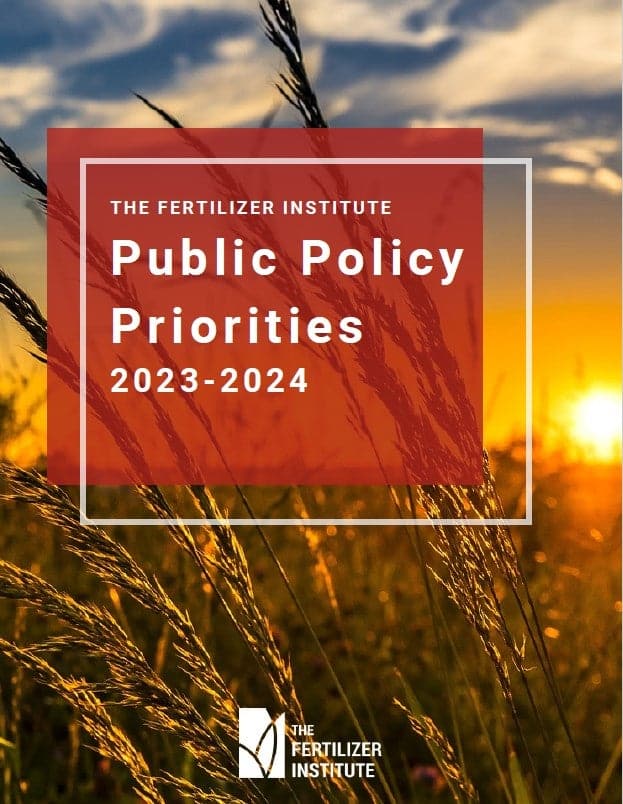
ARLINGTON, VA – The Fertilizer Institute (TFI) today released its list of 2023-2024 public policy priorities for working with the Biden Administration, regulatory agencies, and a closely divided 118th Congress.
“With the 118th Congress underway, we are strongly advocating for policies that ensure the fertilizer industry is able to continue feeding the world sustainably through innovation, efficiency, and legislative and regulatory updates that are long overdue,” said TFI President and CEO Corey Rosenbusch. “We’re also very much looking forward to engaging on the Farm Bill and finding bipartisan solutions that will strengthen farmers’ bottom lines and environmental stewardship.”
TFI’s priorities are broken down into seven key areas: Economic Growth & Competitiveness; Transportation & Infrastructure; Environment; Safety & Security; Farm Bill Reauthorization; Permitting & Registration; and Innovation.
“Fertilizer is a globally traded commodity and heavily influenced by geopolitical events. Over the past two years we have seen major market disruptions that make clear the need to strengthen domestic production,” Rosenbusch continued. “The Biden Administration’s $500 million grant program is a great start, but what the industry needs is significant change in permitting policy, and ensuring producers have access to critical inputs and affordable energy.”
Those changes include reforming the National Environmental Policy Act (NEPA), which sets forth a convoluted, time consuming, and expensive permitting process; the designation by the United States Geological Service (USGS) of phosphate and potash as critical minerals; and policies that ensure safe, secure, and reliable access to affordable energy.
“The Farm Bill for us is all about conservation and continuing to push for science-backed 4R Nutrient Stewardship adoption by growers and removing the existing barriers to grower adoption,” Rosenbusch said. “Policies we want to see included are recognizing Certified Crop Advisors (CCAs) as Technical Service Providers (TSPs), which will enable greater cost-share opportunities for growers working with agricultural retailers. Additionally, we’re pushing for financial incentives to growers through use of the Conservation Service Model to utilize conservation and environmental best practices.”
Strengthening the domestic fertilizer industry and pushing for policies that promote grower adoption of nutrient stewardship practices are a heavy focus, but not the only ones eyed by TFI.
“Transportation and infrastructure are always big issues for us. Fertilizer needs to be delivered to growers exactly when and where they need it and there is not much room for error or delay,” Rosenbusch explained. “Supply chain disruptions have hit all industries hard, but fertilizer delays can lead to lower crop yields and less food. Fertilizer moves year-round via railways, highways, waterways, and pipelines, and we need a safe and reliable infrastructure network. Food security is national security, and fertilizer availability is paramount to keeping us all fed.”
Innovation and 4R research are two areas where TFI has hit the ground running, with the Plant Biostimulant Act and the ACE Agriculture Act both introduced in each chamber of Congress in March.
“Biostimulants are a relatively new innovation in agriculture,” Rosenbusch explained. “There is great potential in these products, but as with any new technology there are hurdles.”
Among the biggest of the hurdles mentioned by TFI’s Rosenbusch are the lack of a clear and consistent definition for “biostimulant” and the fact that there is no uniform framework to regulate them as plant nutrition products.
“TFI and our members are excited about biostimulants and we’re also introducing a Biostimulant Certification Program in the coming months. The aim of the program is to foster growth and farmer confidence in this innovative space,” said Rosenbusch.
The ACE Agriculture Act will help farmers by focusing United States Department of Agriculture (USDA) research on critical areas such as soil health and increasing crop yields. The fertilizer industry has long supported agricultural research through the 4R Research Fund, as well as independent research that has focused on multiple crops, geographic locations, and methods to show farmers the beneficial outcomes of new technologies and farming practices. In addition to industry efforts through the 4R Research Fund, TFI is a year and a half into a nationwide goal of having 70 million US farming acres under 4R nutrient stewardship management by 2030.
“We’ve done the research and know that these practices have both environmental and economically beneficial outcomes associated with their implementation,” Rosenbusch continued. “But these practices are not one-size fits all and not only is each farm different, but each acre on each farm is unique and growers need to feel confident when implementing new practices. We believe more research directly from the USDA on these critical issues can only help farmers continue growing that confidence and lead to wider farmer adoption.”
TFI will use its member-driven public policy priorities to educate policymakers on the realities of an essential industry that is responsible for half of all food grown around the world. “Our industry is vital to ensuring our farmers can enrich the soil and grow the crops that feed the world and its growing population,” Rosenbusch concluded. “We look forward to working with the Biden Administration and the 118th Congress.”
TFI’s full list of 2023-2024 public policy priorities can be found here.
###
The Fertilizer Institute (TFI) is the leading voice of the nation’s fertilizer industry. Tracing its roots back to 1883, TFI’s membership includes fertilizer producers, wholesalers, retailers and trading firms. TFI’s full-time staff, based in Washington, D.C., serves its members through legislative, educational, technical, economic information and public communication programs. Find more information about TFI online at TFI.org and follow us on Twitter at @Fertilizer_Inst. Learn more about TFI’s nutrient stewardship initiatives at nutrientstewardship.org and on Twitter at @4rnutrients.
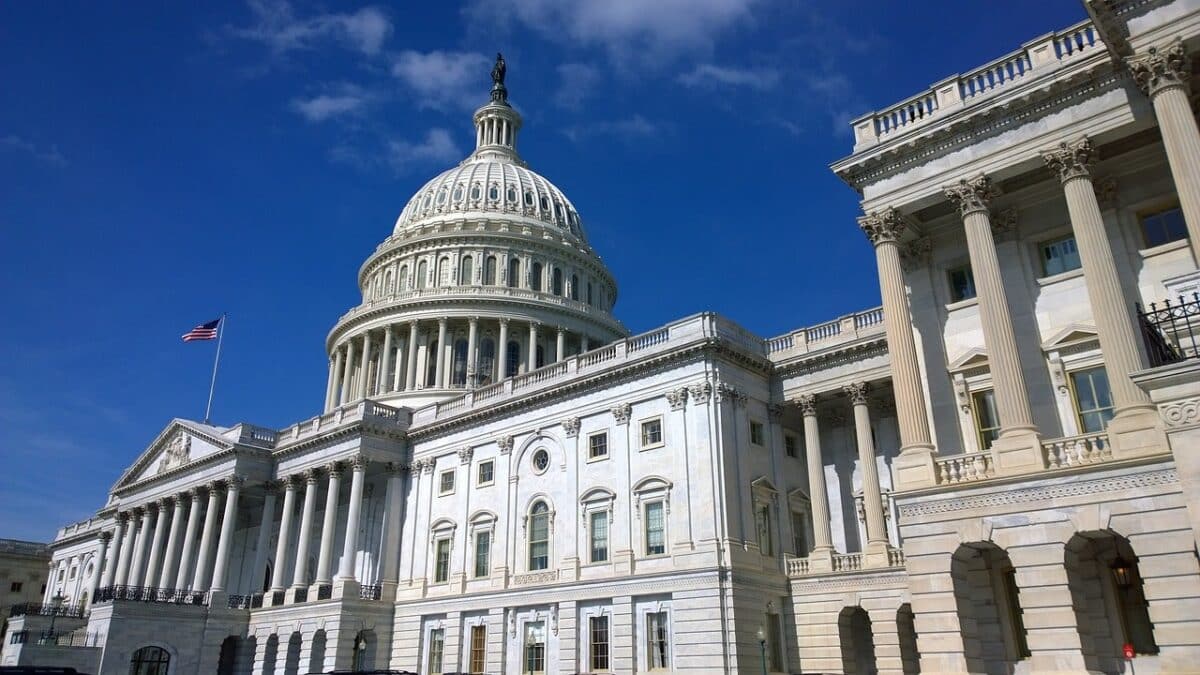
Arlington, VA – The Fertilizer Institute (TFI) President and CEO Corey Rosenbusch today provided official testimony during the House Committee on Agriculture hearing Uncertainty, Inflation, Regulations: Challenges for American Agriculture.
“Fertilizer is an essential tool for farmers to achieve the yields necessary to feed our growing world,” Rosenbusch said. “We appreciate the opportunity to shed light on current market dynamics and offer solutions to the pressures currently facing the U.S. agricultural sector. As always, the fertilizer industry is committed to ensuring adequate supply to meet farmer demand for the nutrients that are so essential to growing healthy and abundant crops.”
Rosenbusch focused much of his testimony on the fact that fertilizer is a globally traded commodity subject to international pressures and geopolitical events.
“Domestic production of fertilizer accounts for only 7% of global production and 90% of all fertilizer usage happens outside of the United States,” Rosenbusch continued. “Geopolitical events have been the biggest disrupter to fertilizer markets in recent years.”
The geopolitical events Rosenbusch referred to included sanctions on Belarus, which supplies 20% of the world’s potash supply; China, which is a major exporter of fertilizers, but last year imposed restrictions on fertilizer exports; and Russia, which has historically provided 20% of global fertilizer supplies as the world’s largest fertilizer exporter.
Rosenbusch then offered solutions and items Congress could act on to improve domestic production and supply.
“While Congress cannot control Russia and China, there are a number of areas where policy could have a positive impact on the agricultural sector,” Rosenbusch concluded. “Regulatory certainty is perhaps the most significant area Congress could help. Additionally, listing potash and phosphate as critical minerals, energy policy that supports an abundant and affordable supply of natural gas, permitting reform to streamline long delayed fertilizer projects, focusing on USDA conservation programs that empower agronomists and certified crop advisors to help farmers with nutrient management, and a focus on supply chain bottlenecks through improving rail service and promoting driver recruitment and retention.”
Rosenbusch’s oral statement can be found here
Rosenbusch’s full written testimony can be found here.
TFI’s full policy solutions document can be found here.
###
The Fertilizer Institute (TFI) is the leading voice of the nation’s fertilizer industry. Tracing its roots back to 1883, TFI’s membership includes fertilizer producers, wholesalers, retailers and trading firms. TFI’s full-time staff, based in Washington, D.C., serves its members through legislative, educational, technical, economic information and public communication programs. Find more information about TFI online at TFI.org and follow us on Twitter at @Fertilizer_Inst. Learn more about TFI’s nutrient stewardship initiatives at nutrientstewardship.org and on Twitter at @4rnutrients.
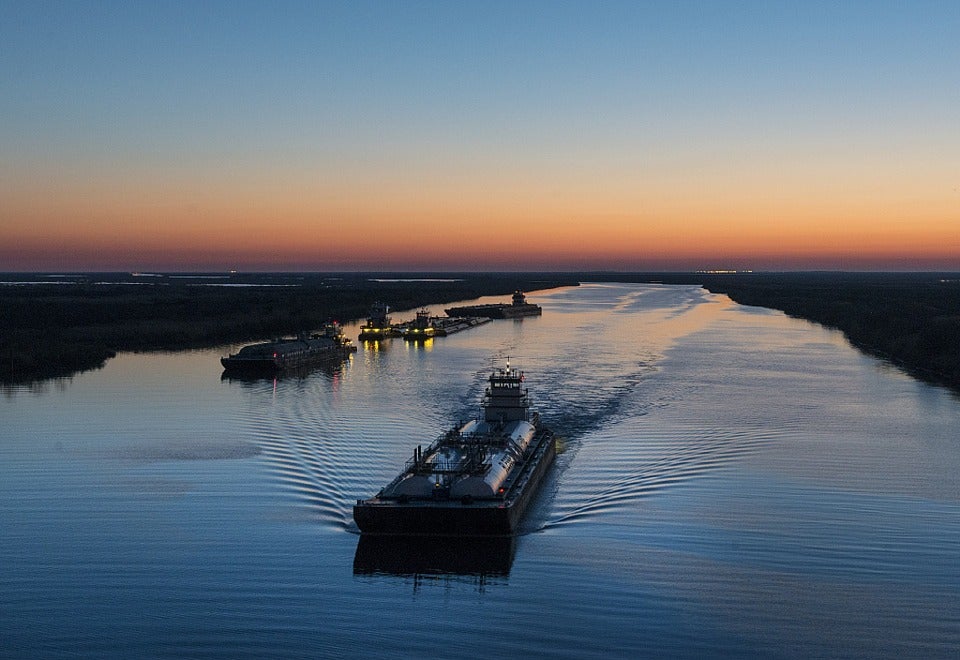
ARLINGTON, VA – The Fertilizer Institute (TFI) applauds Congress for passing the Water Resources Development Act (WRDA) of 2022, a key piece of legislation related to our nation’s water infrastructure.
“Our nation’s transportation infrastructure is critical to agriculture and rural America’s competitive advantage in world markets, and WRDA provides vital support for that network,” said TFI President and CEO Corey Rosenbusch. “WRDA is the foundation for the modernization of our nation’s inland waterways and ports, which are an integral component of the fertilizer distribution system.”
Of particular importance, this year’s WRDA reauthorization makes permanent a cost-share structure for inland waterways projects where 65% of funding comes from the general treasury with the remaining 35% coming from the Inland Waterways Trust Fund.
“Making the cost-share permanent will promote much needed investment for inland navigation projects, as well as provide confidence to industry that much needed maintenance and modernization of our inland waterway system will happen,” Rosenbusch explained. “On a ton-mile basis, approximately one-fourth of fertilizer moves on the inland barge system and these projects are absolutely critical to the safe and efficient distribution of fertilizers.”
Highlighting the importance of WRDA and the need for modernizing the country’s aging water infrastructure, Rosenbusch noted the 700 percent increase in unscheduled work stoppages for repairs of locks and dams built nearly a hundred years ago but designed only to last 50 years.
“These delays are not only disastrous for the farmers who receive much of the almost 70 million tons of fertilizer each year via our nation’s waterways, they can also raise the prices of everyday goods and food for consumers,” Rosenbusch concluded. “The fertilizer industry appreciates the bipartisan work of Congressional leaders that have made modernization of our inland waterways a priority.”
###
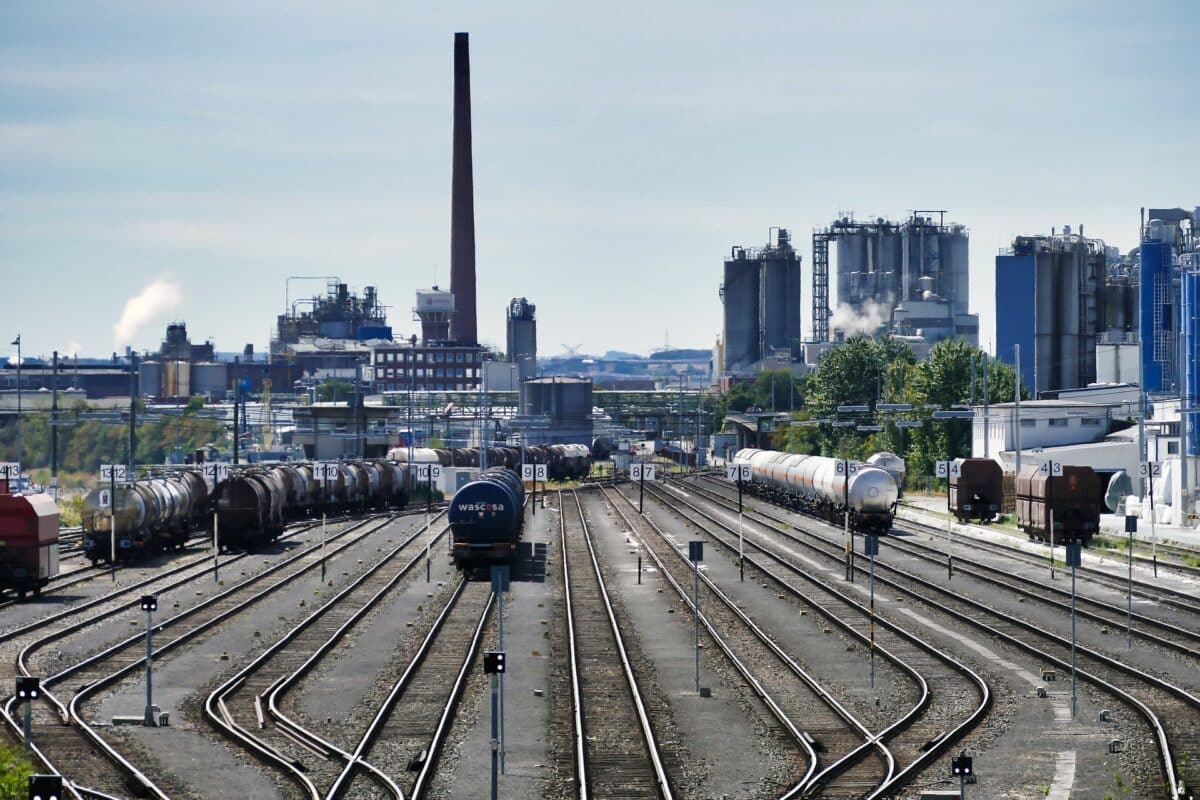
ARLINGTON, VA – The Fertilizer Institute (TFI) today applauded Congress for taking action to avert an economically devastating rail strike.
“TFI thanks Congress for its swift work this week to implement the September Tentative Agreements (TAs) reached by rail carriers and union leadership to avert a rail strike that would have severely disrupted delivery of fertilizer to farmers as well as hurting domestic production,” said TFI President and CEO Corey Rosenbusch. “TFI is also appreciative of the Biden Administration’s leadership as this challenging situation took bipartisan efforts on all sides and every level of our government to make it happen. It is encouraging to see members of both parties working together, and this is good news for our nation as we approach the 118th Congress.”
The U.S. House of Representatives on Wednesday voted on two resolutions; one to implement Tentative Agreements (TAs) that were agreed to in September by the rail carriers and labor union leadership, the second to add seven additional paid sick days to rank and file rail workers. Both resolutions passed the House. The Senate today voted on both resolutions, as well as a third that would have extended the negotiations. Of the three resolutions, the Senate passed only the resolution to implement the September TAs, which should now head to the President for his signature
“There was an industry-wide sigh of relief today after both Congressional chambers voted in favor of implementing the September TAs,” Rosenbusch continued. “Rail is critical to the movement of fertilizer year-round. Averting embargoes and production delays were crucial to not only ensuring we’re able to provide the fertilizers our nation’s farmers need, but also avoiding additional disruptions to a global market already constrained by geopolitical events and volatile energy prices.”
Today’s Congressional action to ensure the domestic rail network remains operational ends months of uncertainty for the fertilizer industry and other industries heavily dependent on rail. “Our members can now get back to doing what they do best,” Rosenbusch concluded. “And that’s producing and shipping fertilizers to the farmers across the country that grow the food, fuel and fiber that we all need. Today is a victory for food security, both in the U.S. and around the world.”
###
The Fertilizer Institute (TFI) is the leading voice of the nation’s fertilizer industry. Tracing its roots back to 1883, TFI’s membership includes fertilizer producers, wholesalers, retailers and trading firms. TFI’s full-time staff, based in Washington, D.C., serves its members through legislative, educational, technical, economic information and public communication programs. Find more information about TFI online at TFI.org and follow us on Twitter at @Fertilizer_Inst. Learn more about TFI’s nutrient stewardship initiatives at nutrientstewardship.org and on Twitter at @4rnutrients.

ARLINGTON, VA – In a statement from President and CEO Corey Rosenbusch, The Fertilizer Institute (TFI) today praised the Biden Administration for its leadership to avert an economically devastating rail strike by codifying agreements made between labor unions and rail carriers in September.
“TFI appreciates the leadership shown by President Biden in emphatically supporting efforts to codify the Tentative Agreements reached by rail carriers and labor unions in September. With over half of all fertilizer moving by rail year-round, we absolutely cannot afford a rail strike and Congress must act now to ensure that fertilizers and other critical materials and goods that U.S. consumers rely on every day get to where they are needed. Without Congressional action, rail networks will shut down on Dec. 9th, but our deadline is Sunday, December 4th which is when ammonia and other fertilizers and inputs will stop moving on the rails in preparation for a strike. These embargoes could hamper production and add additional uncertainty to an already tight global market.”
TFI has been heavily engaged in efforts to avert a nationwide rail network shutdown and will continue to do so until the matter is resolved. Below are past press releases and advocacy letters from TFI related to the potential rail strike.
###
The Fertilizer Institute (TFI) is the leading voice of the nation’s fertilizer industry. Tracing its roots back to 1883, TFI’s membership includes fertilizer producers, wholesalers, retailers and trading firms. TFI’s full-time staff, based in Washington, D.C., serves its members through legislative, educational, technical, economic information and public communication programs. Find more information about TFI online at TFI.org and follow us on Twitter at @Fertilizer_Inst. Learn more about TFI’s nutrient stewardship initiatives at nutrientstewardship.org and on Twitter at @4rnutrients.

Arlington, VA – In a letter to Congressional leadership, The Fertilizer Institute (TFI) today again urged Congress to act to avert a potential rail strike that would see fertilizer and fertilizer inputs embargoed roughly five days prior to the inflation worsening strike.
“We warned that the U.S. couldn’t afford a rail strike in September, and that still remains true today,” said TFI President and CEO Corey Rosenbusch. “The movement of fertilizer is greatly dependent on rail throughout the year. A rail strike would be devastating to fertilizer manufacturing and to fertilizer distribution to the farmers, who need it to grow the food on which the world depends.”
The tentative agreements reached by all parties at the last minute in September were welcome news at the time. Currently, it is possible that a strike could begin as soon as November 19, unless the “status quo” period is extended. If an agreement is not reached or if the “status quo” period cannot be extended, Congress must act. Fertilizer shipments could be embargoed as soon as November 14.
“We averted a strike in September, but in preparation for a rail stoppage certain sensitive cargo starts coming off the line. Fertilizer falls into that category and will likely be embargoed on Monday, November 14,” Rosenbusch continued. “For every day shipments are embargoed we essentially lose five shipping days because of the ramp down and ramp up.”
The situation is compounded by continuing logistical and supply chain disruptions that remain unresolved.
“There is zero elasticity in transportation at the moment,” Rosenbusch explained. “We continue struggling with enough trucks, drivers, and most recently, barges. Low water levels have severely curtailed barge movements along the Mississippi River and have affected grain and fertilizer shipments. We’re operating without a backstop and ultimately consumers are going to be the ones paying for inaction.”
Absent an agreement between the rail carriers and the unions, the only thing to stop an economically devasting rail strike is action from Congress.
“Congress must act and they must act immediately upon its return on November 14,” Rosenbusch said. “A rail stoppage is going to exacerbate inflation and hit U.S. consumers right before the holidays. Congress can avert this disaster and they must do so quickly.”
###
The Fertilizer Institute (TFI) is the leading voice of the nation’s fertilizer industry. Tracing its roots back to 1883, TFI’s membership includes fertilizer producers, wholesalers, retailers and trading firms. TFI’s full-time staff, based in Washington, D.C., serves its members through legislative, educational, technical, economic information and public communication programs. Find more information about TFI online at TFI.org and follow us on Twitter at @Fertilizer_Inst. Learn more about TFI’s nutrient stewardship initiatives at nutrientstewardship.org and on Twitter at @4rnutrients.